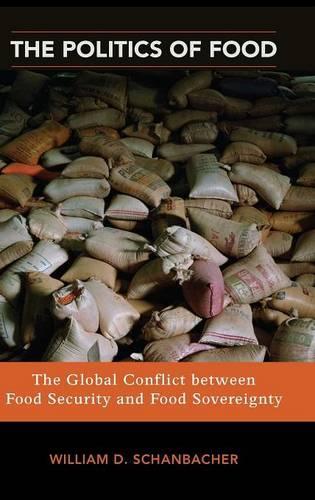
The Politics of Food: The Global Conflict between Food Security and Food Sovereignty
(Hardback)
Publishing Details
The Politics of Food: The Global Conflict between Food Security and Food Sovereignty
By (Author) William D. Schanbacher
Bloomsbury Publishing PLC
Praeger Publishers Inc
26th February 2010
United States
Classifications
Tertiary Education
Non Fiction
Economics
International relations
338.19
Physical Properties
Hardback
168
Width 156mm, Height 235mm
454g
Description
A description of the current global food system, this book challenges our ethical responsibility to the global poor and implicates us all for failing to curb global hunger and malnutrition. The Politics of Food: The Global Conflict between Food Security and Food Sovereignty argues that our current global food system constitutes a massive violation of human rights. In this impassioned, well-researched book, William Schanbacher makes the case that the food security model for combating global hungerdriven by the United Nations, the World Bank, the International Monetary Fund, and other organizationsis a failure, too dependent on trade and too reliant on international agribusiness. Instead, the emerging model of food sovereigntyhelping local farmers and businesses produce better quality foodis the more effective and responsible approach. Through numerous case studies, the book examines critical issues of global trade and corporate monopolization of the food industry, while examining the emerging social justice movements that seek to make food sovereignty the model for battling hunger.
Reviews
Recommended. Upper-division undergraduate through professional collections. * Choice *
One of the top 7 books on feeding the world: Our current global food system is a violation of human rights, says Schanbacher. This passionate and informative book argues the current model for combating global hunger is too dependent on trade and international agribusiness. Schanbacher puts together a concise argumentexamining global trade and corporate monopolisation of the food industryon why food sovereignty is a more sustainable and effective approach to solving world hunger. * The Guardian *
Author Bio
William D. Schanbacher, PhD, is a scholar of religion and social ethics and received his PhD from Claremont Graduate University, Claremont, CA.
